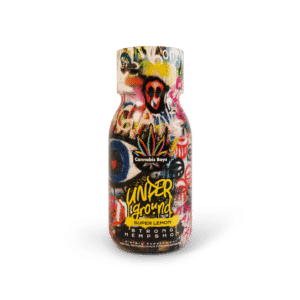Medical hemp and CBD (cannabidiol) products are topics that have grown in popularity in recent years. The development of scientific research and the increasing use of these substances in medicine have contributed to growing public awareness of their potential benefits. At the same time, the issue of regulating CBD products requires a balance between liberalizing regulation and ensuring product safety and quality. This requires international cooperation, scientific research and dialogue between governments, the pharmaceutical industry and the medical community. Ultimately, targeted regulation of CBD products can not only improve the availability of hemp-based therapies, but also contribute to a better understanding of their potential benefits and risks.
What is Medical Hemp?
Medical cannabis are hemp plants grown specifically for medical purposes. They contain various chemical compounds called cannabinoids, the best known of which are THC (tetrahydrocannabinol) and CBD (cannabidiol). THC is mainly responsible for psychoactive effects, while CBD has no such effects. Both substances have potential medical applications.
Health Benefits of Medical Hemp and CBD Products.
Research suggests that medical cannabis and CBD products may have health benefits for treating various conditions, such as:
- Chronic pain: CBD has analgesic properties and can be effective in relieving pain.
- Seizures: CBD shows potential in treating epilepsy, including rare pediatric forms.
- Anxiety and depression: preliminary research suggests that CBD may be helpful in alleviating symptoms of these conditions.
- Neurodegenerative diseases: Cannabinoids may have the potential to slow the progression of diseases such as Alzheimer's and Parkinson's.
Problems of Regulating CBD Products.
Regulation of CBD products is a complex issue that involves many aspects:
- Definition and classification: Different countries have different definitions of what constitutes a CBD product. This can affect product availability and quality.
- Testing and certification: Many countries require products to be tested for THC, which is a controlled substance in many jurisdictions. This process can be time-consuming and expensive.
- Quality standards: The lack of uniform quality standards can lead to discrepancies in the efficacy and safety of CBD products.
- Patient education and information: Many people are unaware of the risks associated with the use of CBD products, which can lead to inappropriate use or interactions with other medications.
Impact of Regulation on Industry and Patients
The regulations have a direct impact on the CBD products industry and the patients who use these products:
- Product availability: Tougher regulations could limit the availability of CBD products, which could make it harder for patients to get to potentially effective therapies.
- Pricing: Regulation can affect product prices, which is important for those with lower incomes.
- Innovation: Overly restrictive regulations can stifle innovation in CBD products and research into their medical applications.
International Cooperation and Dialogue
In order to effectively regulate the market for CBD products, international cooperation and dialogue among various players is essential:
- Governments and regulatory agencies: Need to develop a consistent regulatory framework at the national and international levels.
- Pharmaceutical industry and manufacturers: Work together to ensure product quality and safety and promote innovation.
- Medical community: Involve doctors and researchers in the regulatory process to make sure CBD products are properly tested and safe for patients.
Regulating CBD products is a complex task that requires a balance between liberalization and protecting public health. Proper regulation can contribute to better access to cannabis-based therapies while ensuring patient safety and product quality. International cooperation and dialogue between governments, the pharmaceutical industry and the medical community are key to achieving these goals. As medical cannabis research continues to evolve, regulation should be flexible to respond appropriately to new information and advances in the field.
What are medical hemp and CBD products?
Medical hemp is a cannabis plant that contains high levels of cannabidiol (CBD) and low levels of THC (tetrahydrocannabinol), a psychoactive substance. Unlike regular hemp, medical varieties are grown for their medicinal properties and are only available by prescription. CBD products are formulations containing cannabidiol, which is extracted from medical hemp or synthesized in a laboratory.
Why is it important to regulate CBD products?
Regulation of CBD products is crucial due to the need to ensure the safety and efficacy of these products. Major challenges include standardizing quality, controlling suppliers, and protecting consumers from unfair marketing practices. In addition, regulation helps prevent potential abuse and addiction to THC in CBD products.
What are the health benefits of medical cannabis?
Medical cannabis is used to treat a number of conditions, such as epilepsy, inflammation, chronic pain, anxiety and depressive disorders. Studies also suggest their potential benefits for neurodegenerative diseases such as Parkinson's and Alzheimer's.
What are the current regulations for CBD products?
Regulation of CBD products varies widely around the world. Some countries, such as Canada and the United States, have a fairly liberal approach and allow the sale of some CBD products without a prescription, while others, such as the European Union, require a doctor's prescription or restrict the availability of these products. In Poland, the sale and use of medical hemp is strictly controlled by pharmaceutical law.
Can CBD cause addiction?
Although CBD does not have psychoactive effects like THC, it can still potentially cause psychological dependence in some people. Long-term use of high doses of CBD can lead to what is known as "behavioral addiction," where the product becomes essential for day-to-day functioning.
What are the side effects of medical cannabis?
Side effects are usually mild, but may include: dry mouth, fatigue, appetite changes, sleep disturbances. In some cases, there may also be interactions with other medications or exacerbation of symptoms of comorbidities. That's why it's important to consult a doctor before starting medical cannabis therapy.








